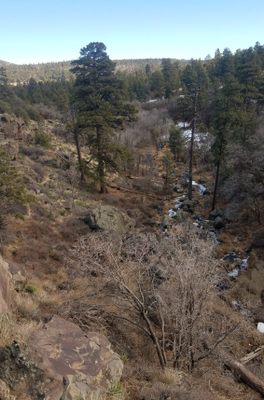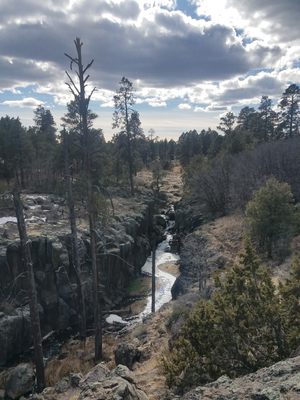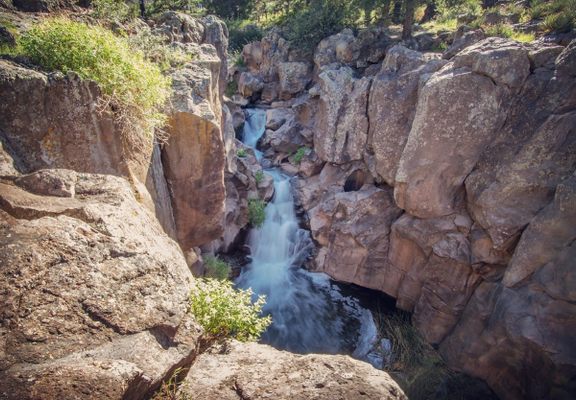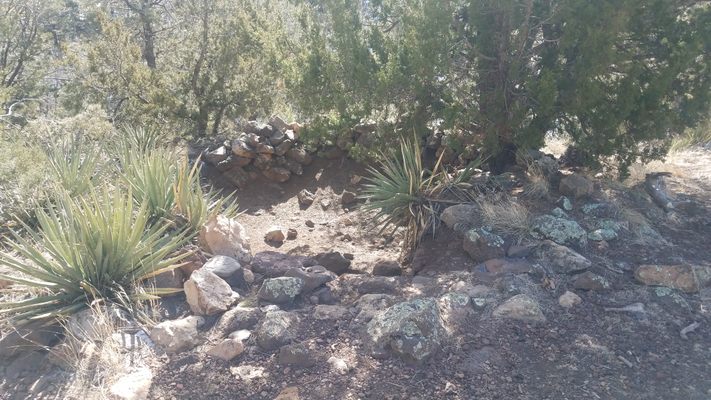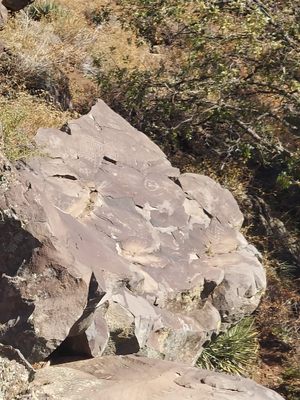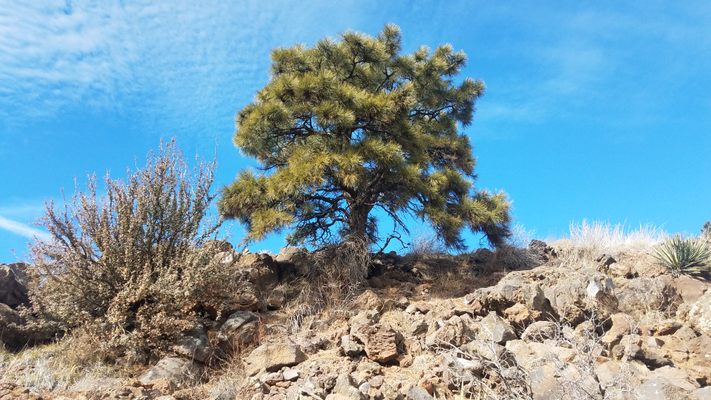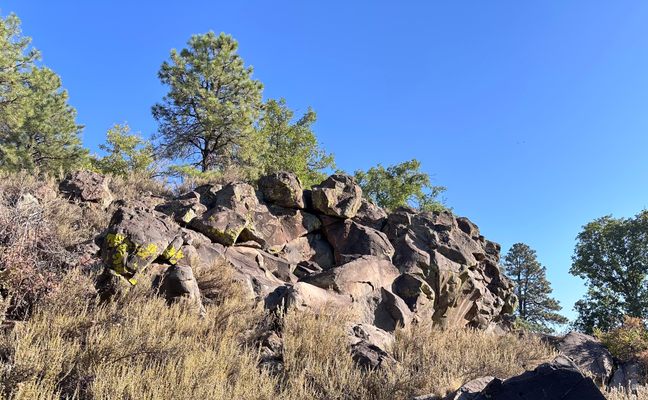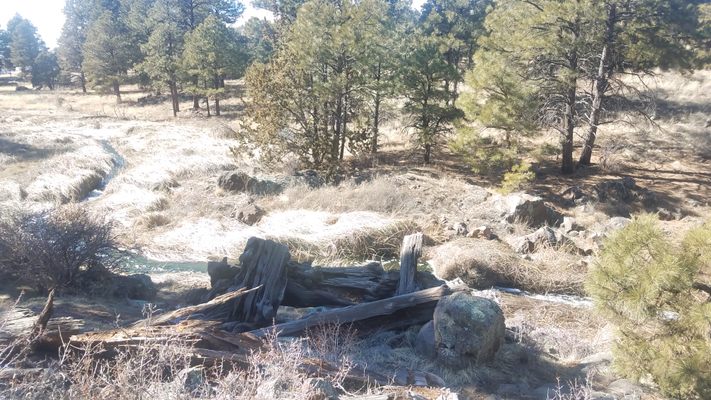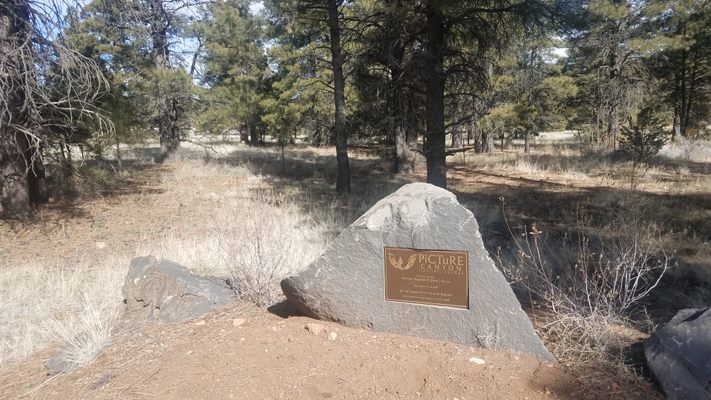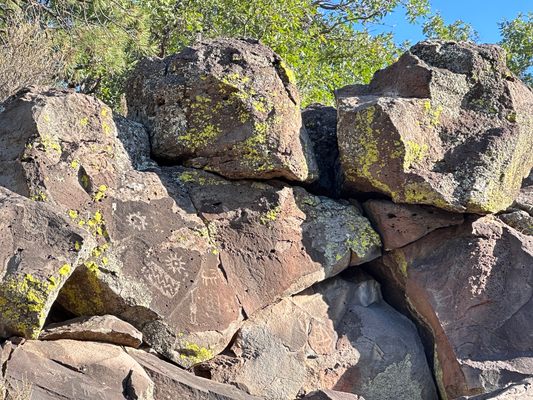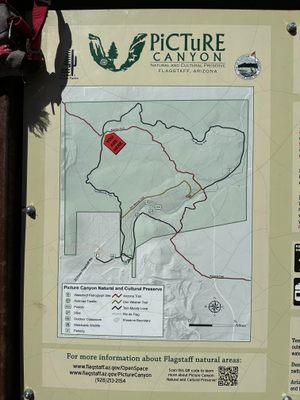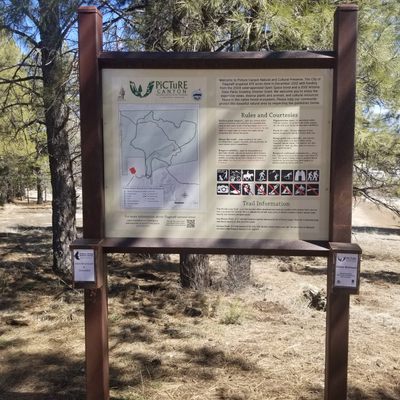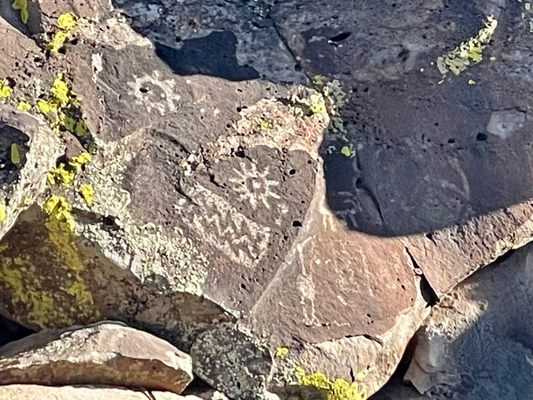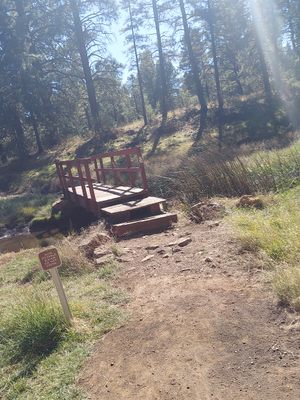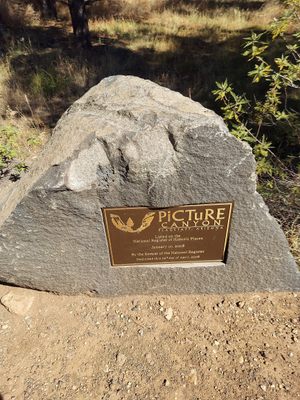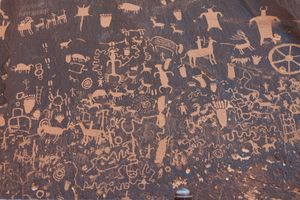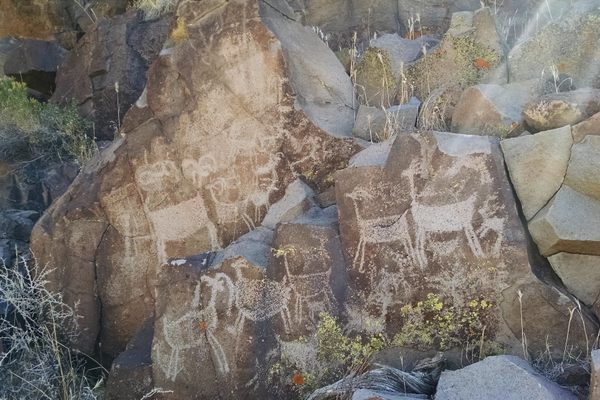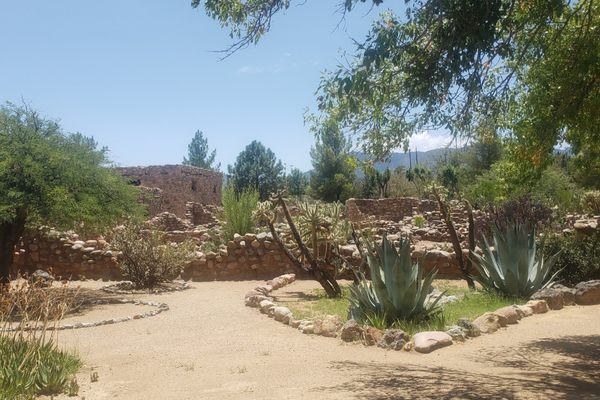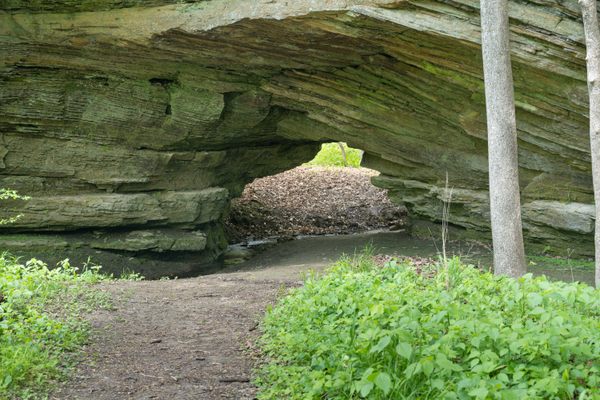About
For many centuries, the Northern Sinagua people lived in the deserts of central and northern Arizona. Translating to “without water,” their name is derived from the name the Spanish Conquistadors gave the area when they arrived, shocked that people were able to survive in such an arid region.
The Northern Sinagua people inhabited what is now Flagstaff, Arizona, from around 700 to 1300. Today, a large and scenic nature preserve within the city protects rare wetlands, birds and other wildlife, and the more than 150 Sinagua petroglyphs that gave Picture Canyon its name.
The Sinagua people were primarily hunter-gatherers, but they did practice some limited agriculture after picking up irrigation techniques from their neighbors, the Hohokam tribe. Etched on rocks throughout the area, the petroglyphs in Picture Canyon depict scenes from this tribal life, such as hunters and animals like deer, elk, bighorn sheep, and water birds.
For reasons that are not totally understood—possibly drought, resource depletion, clashes with the neighboring Yavapai people, a changing climate, or some combination of these factors—the Northern Sinagua people left the region and resettled elsewhere, possibly becoming the early ancestors of the Hopi, Zuni, or Pima peoples.
For many centuries thereafter Picture Canyon was neglected and the growth of the city of Flagstaff began threatening the archaeological sites. Timber companies constructed railroads across the area in the early 20th century. The Arizona archaeologist Harold S. Colton took note of the area and studied it in 1928 but in the process unceremoniously looted the graves he uncovered there. Later, the El Paso company gas line was laid across the area and likely destroyed many historical sites in the process. The canyon also became a dumping ground by locals for cars, mattresses, and other garbage.
For many years the petroglyphs and other archaeological sites in Picture Canyon were a little-known secret. As the city of Flagstaff kept growing, development encroached on the area. Citizens began advocating for the restoration and preservation of this picturesque landscape. They organized several cleanup efforts, including having cranes brought in to remove the abandoned and rusting cars.
Their efforts paid off, and today the Picture Canyon Natural and Cultural Preserve includes a small network of trails looping around the canyon and the surrounding area. Observant visitors can spot the numerous petroglyphs etched by the Northern Sinagua people throughout the preserve, along with the ruins of some pithouses constructed many centuries ago, and other archaeological artifacts.
Related Tags
Know Before You Go
The map coordinates above lead to the parking area and trailhead. The Picture Canyon Natural and Cultural Preserve is free to enter but only open to daytime use. Please respect the cultural legacy of the place and do not touch or deface any petroglyphs you find, or remove any pottery shards or other artifacts you may encounter.
Community Contributors
Added By
Published
February 4, 2019
Sources
- https://www.flagstaff.az.gov/2881/Picture-Canyon
- https://hikearizona.com/decoder.php?ZTN=1997
- https://en.wikipedia.org/wiki/Picture_Canyon_Natural_and_Cultural_Preserve
- http://grandcanyoncollective.com/2018/09/04/cool-spaces-in-hot-places-picture-canyon/
- http://friendsoftheriodeflag.org/discover-the-rio/picture-canyon-acquisition/



